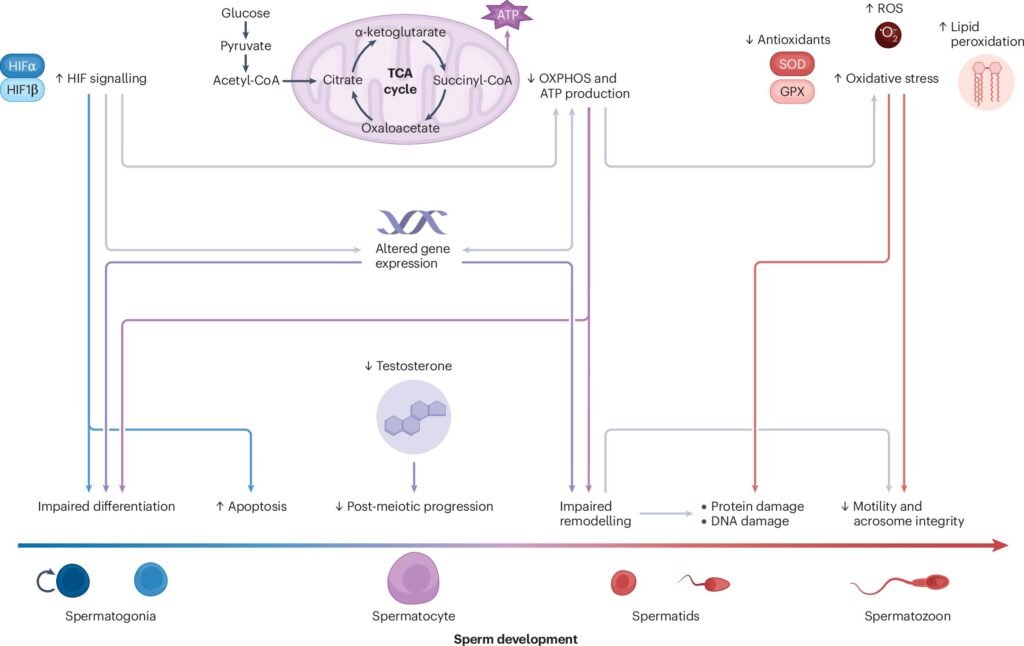A recent study published in Nature Reviews Urology suggests that medical conditions like sleep apnea may be contributing to the decline in male fertility observed over the past few decades. The review, led by reproductive biologist Dr. Tessa Lord from the University of Newcastle, explores the impact of factors such as sleep apnea, varicocele, and high-altitude exposure on sperm quality and overall reproductive health in men.
Dr. Lord highlighted that conditions like varicocele and sleep apnea can lead to testis hypoxia, a reduction in oxygenated blood levels in the testes. This hypoxia can negatively affect sperm count and quality by disrupting hormone production and gene expression.
The study found that chronic medical conditions causing testicular hypoxia pose a prolonged threat to male reproductive health. Varicocele, which affects up to 45% of men struggling with infertility, and obstructive sleep apnea, affecting 13%–30% of males, were identified as common culprits. While high-altitude activities can also cause temporary hypoxia in the testes, the effects on fertility are reversible once oxygen levels are restored.
Dr. Lord emphasized the need for greater awareness of the reproductive risks associated with sustained testicular hypoxia. Timely management of conditions like varicocele and sleep apnea could help mitigate fertility risks, with evidence suggesting that addressing underlying issues could potentially reverse subfertility caused by hypoxia.
The study also highlighted the urgency in uncovering potential intergenerational effects of testicular hypoxia on male fertility trends. Dr. Lord pointed out that hypoxia in fathers could lead to developmental issues in embryos, potentially resulting in fertility problems for future generations.
Despite progress in understanding the relationship between hypoxia and fertility, significant knowledge gaps persist. Further research is needed to fully comprehend the broader implications of these findings and develop effective interventions to improve fertility outcomes and safeguard reproductive health for generations to come.
For more information, the study by Dr. Tessa Lord can be found in Nature Reviews Urology (2025) with the DOI: 10.1038/s41585-024-00969-6. The research was conducted at Newcastle University.
This article was originally published on MedicalXpress and can be accessed at https://medicalxpress.com/news/2025-01-high-altitude-hiking-apnea-explores.html.


